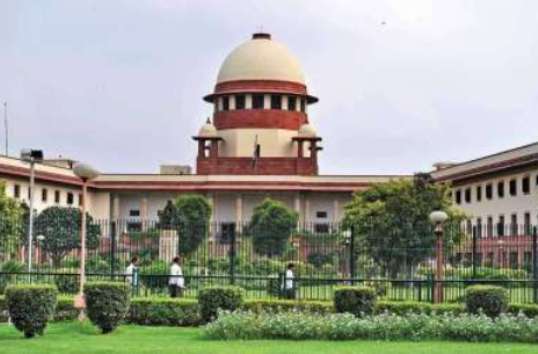BY NICOLE KAREN GOMEZ
The coronavirus (COVID-19) outbreak which was labelled as a global pandemic by the World Health Organisation has brought the world to a halt. Countries have invoked several measures such as nationwide lockdowns in order to contain the spread of the virus and flatten the curve. India which is one among other countries that implemented lockdown has had to tackle the adverse effects caused on the various functions of the country. A substantial function being hindered is the working of the judicial authority of India, comprising of courts and tribunals, which has issued circulars restricting their functioning to extremely urgent matters being taken up through the mode of video conferencing, ultimately resulting in effective closure of courts and tribunals.
Suo Moto means an action carried out by a court on its own by taking cognizance of a matter without any request from the parties involved. Matters yet to be filed and matters with filing deadlines during the lockdown period are issues for which courts and tribunals have taken suo motu cognizance.
After deliberation on the challenges faced by lawyers and litigants in filing petitions/applications/suits/appeals owing to the lockdown, on 23 March 2020 the Delhi High Court addressed the issue of limitation by passing an office order the following directions:
“Lockdown/Suspension of work of Courts shall be treated as “closure” within the meaning of the Explanation appended to Section 4 of the Limitation Act, 1963 and other enabling provisions of the Act and other Statutes, as may be applied to court proceedings. Thus, the limitation for any court proceeding shall not run w.e.f. 23.03.2020 to 04.04.2020 subject to further orders.”
Article 141 of the Constitution of India states “Law declared by Supreme Court to be binding on all courts the law declared by the Supreme Court shall be binding on all courts within the territory of India” and Article 142 states “Enforcement of decrees and orders of Supreme Court and unless as to discovery, etc ( 1 ) The Supreme Court in the exercise of its jurisdiction may pass such decree or make such order as is necessary for doing complete justice in any cause or matter pending before it, and any decree so passed or orders so made shall be enforceable throughout the territory of India in such manner as may be prescribed by or under any law made by Parliament and, until provision in that behalf is so made, in such manner as the President may by order prescribe. (2) Subject to the provisions of any law made in this behalf by Parliament, the Supreme Court shall, as respects the whole of the territory of India, have all and every power to make any order for the purpose of securing the attendance of any person, the discovery or production of any documents, or the investigation or punishment of any contempt of itself”.
In the case of Nidhi Kaim and Anr v. State of Madhya Pradesh and Others, the Supreme Court expressed that “there cannot be any defined parameters, within the framework whereof, this Court would exercise jurisdiction under Article 142 of the Constitution. The complexity of administration, and of human affairs, would give room for the exercise of the power vested in this Court under Article 142, in a situation where clear injustice appears to have been caused, to any party to a lis. In the absence of any legislation to the contrary, it would be open to this Court, to remedy the situation”.[1]
Acknowledging the order passed by the High Court and keeping in view the difficulty was being faced by citizens across the country as a result of social distancing and limited movement of persons outside their residence, a three-judge bench of the Supreme Court of India, on the very day, exercised the powers conferred under Article 142 read with Article 141 of the Constitution of India and passed an order in Suo Motu Writ Petition (Civil) No. 3 of 2020 on the issue of law of limitation for the purpose of achieving complete justice by observing the following:
“To obviate such difficulties and to ensure that the lawyers/ litigants do not have to come physically to file such proceedings in respective Courts/ Tribunals across the country including this Court, it is hereby ordered that a period of limitation in all such proceedings, irrespective of the limitation prescribed under general law or Special Laws whether condonable or not shall stand extended w.e.f. 15th March, 2020 till further orders to be passed by this Court in present proceedings.”
Therefore, the order by the Supreme Court of India, with regard to the ‘extension of limitation’ supersedes the office order issued by the High Court of Delhi. Through the order, the period of limitation pertaining to the requirement of filing an Application for Condonation of Delay along with the contemplated legal proceedings have been temporarily suspended and would resume post-lockdown, thus relieving every litigant from the clock of limitation which ticks constantly. An ordinary court vacation is corollary to the present circumstances of the courts, tribunals and quasi-judicial bodies.
There exists a dire need to invigorate the information technology infrastructure instituted in courts at all levels therefore enabling us to tackle crisis similar to the current one where the normal functioning of the vital public institution such as the courts have been abruptly and unexpectedly ceased. Potential disruptions that might arise can be moderated to a large extend by uniformly implementing e-filing across all courts and tribunals, standardising online portals of courts and upgrading video conferencing facilities. Further, this would significantly improve efficiency and expand public access to courts and case related information.
REFERENCES
- Orders dated_23-Mar-2020 of Hon’ble Supreme Court_26.pdf
- https://www.barandbench.com/columns/law-of-limitation-in-the-time-of-covid-19
- https://www.mondaq.com/india/trials-appeals-compensation/916810/impact-of-the-supreme-court39s-order-of-march-23-2020
- https://corporate.cyrilamarchandblogs.com/2020/03/how-did-a-virus-extend-limitation/#_ftn3
- https://indiankanoon.org/doc/500307/
[1] Nidhi Kaim & Anr vs State Of MP & Others AIR 2017 SC 986

